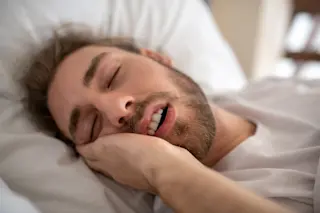If you’ve ever talked in your sleep, you likely only know about it because someone else was awake to hear you. And when that person told you, a sudden, profound feeling of panic may have led you to wonder: Did I reveal my deepest secrets — just like in the 1983 “Talking in Your Sleep” song by The Romantics?
Probably not. Deirdre Barrett, a psychologist and long-time dream researcher at Harvard Medical School, says that sleep talkers might describe an intense, important thing from their lives once in a while, but it’s often mixed in with gibberish that makes it difficult to tell fantasy from reality.
“The idea that a sleep talker is always going to be telling the truth about waking reality is definitely not the case,” says Barrett. Instead, she emphasizes that sleep talking is nothing to worry about, even if the breakthrough messages seem anxious or frightened ...














